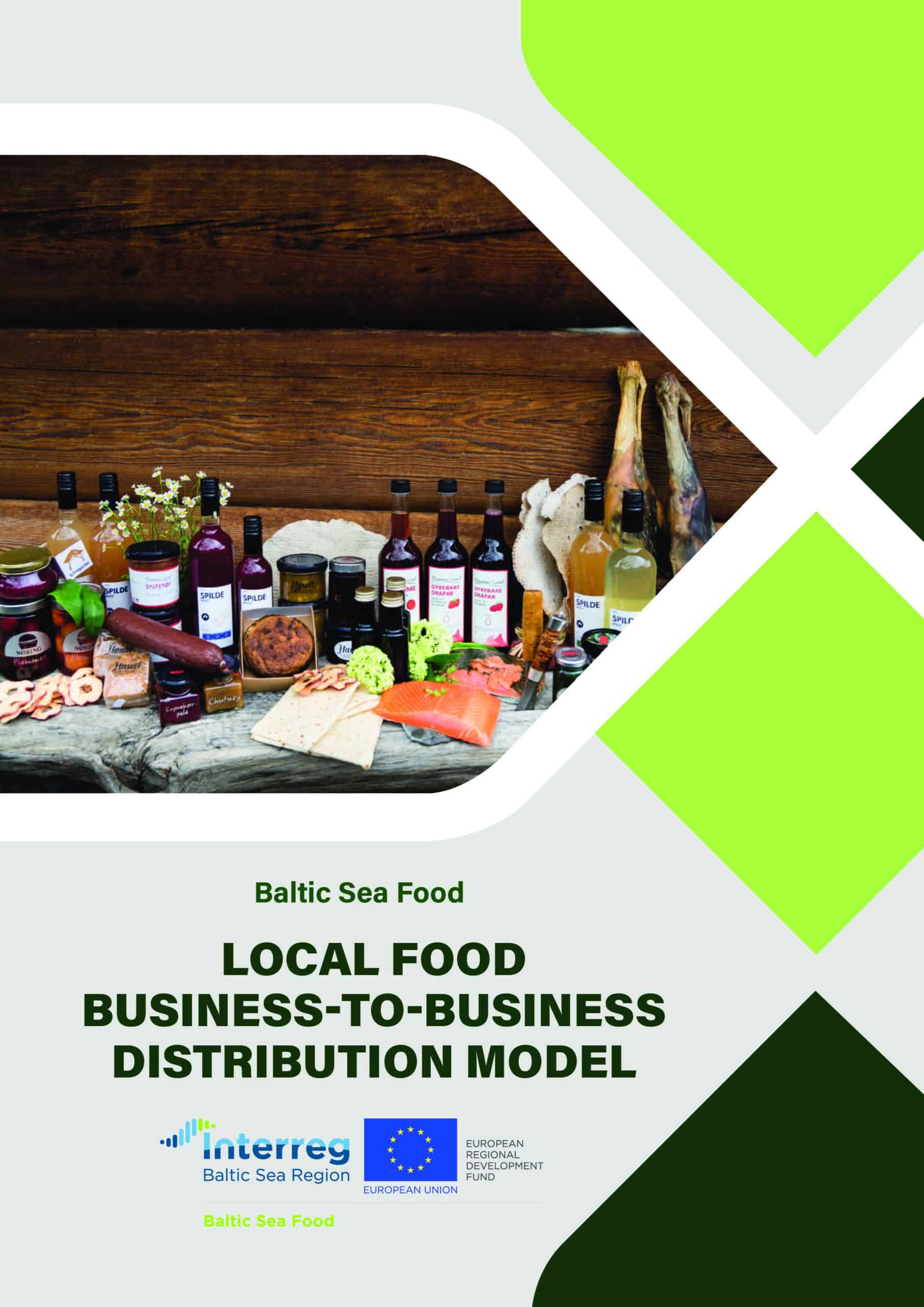Baltic Sea Food
Small local food producers, farmers and service providers in rural areas of the Baltic Sea region are challenged by selling their products to big wholesale companies or supermarket chains. They have limited production volumes and higher prices compared with large producers. There is a need in reviewing and optimising food value chains by strengthening the farmers´ position. A short supply chain can be a solution when it is applied locally through food networks engaging small food producers, farmers, food processors, grocery stores, restaurants, cafes, tourism farms and other actors.
Besides, the market area of local food producers is usually their own home region, while established local food networks cooperate for marketing. The local food networks only have limited B2B distribution systems which hinder local food producers increase their profitability and develop as prosperous businesses. As local food networks are usually founded by family-owned micro-businesses, it is not feasible to take care of the creation of new sustainable B2B distribution solutions. The local farmers and food producers tend to sell their products to end consumers. At the same time, it is more convenient for catering businesses to buy food products from one distribution company instead of having contact with several farmers and producers.
The Interreg Baltic Sea Food project aimed to develop a sustainable business model enabling optimised short B2B distribution chains in the local food sector.
Budgets
in numbers
-
2.43MillionTotal
-
1.62MillionErdf
-
0.09MillionEni + Russia
-
0.14MillionNorway
Achievements
Baltic Sea Food combines transnational strengths, experiences and ideas
Baltic Sea Food brought together 15 partners from 10 countries across the Baltic Sea region to set up a business model for local food distribution. The partners jointly developed suggestions for improvements based on the initial mapping analysis of the current situation. Local food producers got connected with business consumers from gastronomy and retail. A local speciality and the country-specific challenges were taken into consideration and incorporated into a new model for business-for-business (B2B) distribution of local food. The aim was to design a sustainable and transferable business model for B2B distribution applicable for local food nets established by local food producers and providers in rural areas. The model intends to establish shorter supply chains on local and regional level offering opportunities for growth and improved business performance.
New sales channels optimised
Additionally, the partners reviewed and developed new sales channels through small-scale local-food networks, based on cooperation and increasing value of local products in a shorter supply chain. Beyond digital channels, more traditional channels like personal calls or meetings are still a must. Other learnings included strengths of common regional brands in the products, also improving efficiency of marketing by food networks.
Dissemination efforts matter
The project has managed to reach out to an impressive number of stakeholders by using media, radio, press releases and events. Nearly 4,000 SMEs, about 330 food networks and more than 2,000 other interested received the information. Most notably, more than 800 SMEs such as local food producers and farmers, restaurants, farm shops, tourism farms etc. benefitted from capacity building events.
Outputs
E-platforms for food distribution
Development of a regional business model

Project Stories
Partners
Ministry of Rural Affairs of the Republic of Estonia
- TownTallinn
- RegionPõhja-Eesti
- CountryEstonia
- RepresentativeKadi Raudsepp
- Phone
- E-Mail
- Web
Latvian country tourism association (LCTA)
- TownRiga
- RegionRīga
- CountryLatvia
- RepresentativeAsnāte Ziemele
- Phone
- E-Mail
- Web
Mecklenburg-Vorpommern Tourist Board
- TownRostock
- RegionRostock, Kreisfreie Stadt
- CountryGermany
- RepresentativeJohannes Volkmar
- Phone
- E-Mail
- Web
Ystad Municipality
- TownYstad, Sweden
- RegionSkåne län
- CountrySweden
- RepresentativeNiclas Fjellström
- Phone
- E-Mail
- Web
Latvian Agricultural Organization Cooperation Council
- TownRīga
- RegionRīga
- CountryLatvia
- RepresentativeSarmīte Babāne
- Phone
- E-Mail
- Web
Business Region Esbjerg
- TownEsbjerg
- RegionSydjylland
- CountryDenmark
- RepresentativeKnud Hjortlund Hansen
- Phone
- E-Mail
- Web
HANEN – Norwegian Rural Tourism and Local Food association
- TownOslo
- RegionOslo
- CountryNorway
- RepresentativeJan Tjosaas
- Phone
- E-Mail
- Web
NGO Estonian Rural Tourism
- TownTallinn
- RegionPõhja-Eesti
- CountryEstonia
- RepresentativeRaili Mengel
- Phone
- E-Mail
- Web
The Estonian Chamber of Agriculture and Commerce
- TownTallinn
- RegionPõhja-Eesti
- CountryEstonia
- RepresentativeRoomet Sõrmus
- Phone
- E-Mail
- Web
State budgetary vocational educational institution of the Pskov region “Pskov Agrotechnical College”
- TownPskov
- RegionPskov Oblast
- Country
- RepresentativeJulia Tikhanova
- Phone
- E-Mail
- Web
Committee for economic development and investment policy of Pskov oblast
- TownPskov
- RegionPskov Oblast
- Country
- RepresentativeMaria Bulatova
- Phone
- E-Mail
- Web
"SUCCEEDED by PP16 (01.01.2020) Lahti University of Applied Sciences ltd.
- TownLahti
- RegionPäijät-Häme
- CountryFinland
- RepresentativeTuula Löytty
- Phone
- E-Mail
- Web
Lithuanian countryside tourism association
- TownKaunas
- RegionKauno apskritis
- CountryLithuania
- RepresentativeAgne Vaitkuviene
- Phone
- E-Mail
- Web
“Polish Nature” Foundation
- TownŻary
- RegionZielonogórski
- CountryPoland
- RepresentativeTomasz Żółkiewicz
- Phone
- E-Mail
- Web
LAB University of Applied Sciences Ltd
- TownLahti
- RegionPäijät-Häme
- CountryFinland
- RepresentativeAnna Saarela
- Phone
- E-Mail
- Web
-
Project managerKerli NõgesMinistry of Regional Affairs and Agriculture of the Republic of Estonia
-
Legal representativeMarko GorbanMinistry of Rural Affairs of the Republic of Estonia
-
Financial managerKerli NõgesMinistry of Regional Affairs and Agriculture of the Republic of Estonia
-
Communication managerSilja LehtpuuThe Estonian Chamber of Agriculture and Commerce



